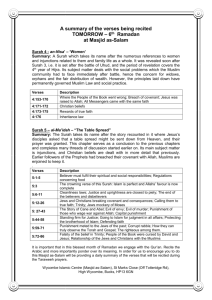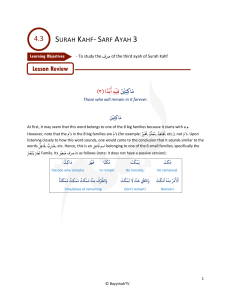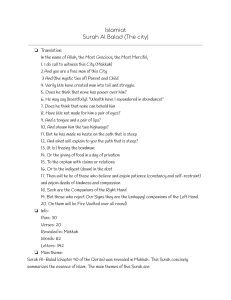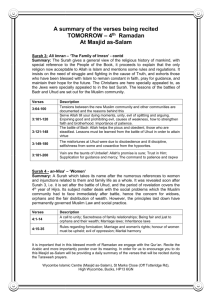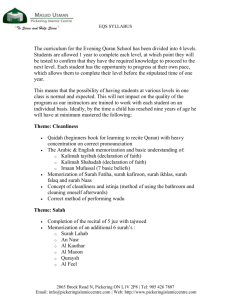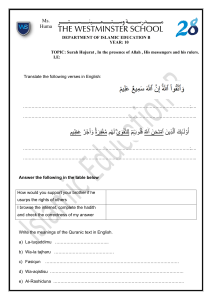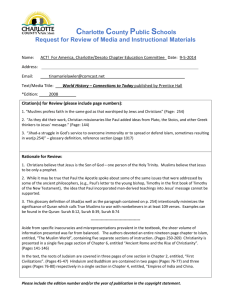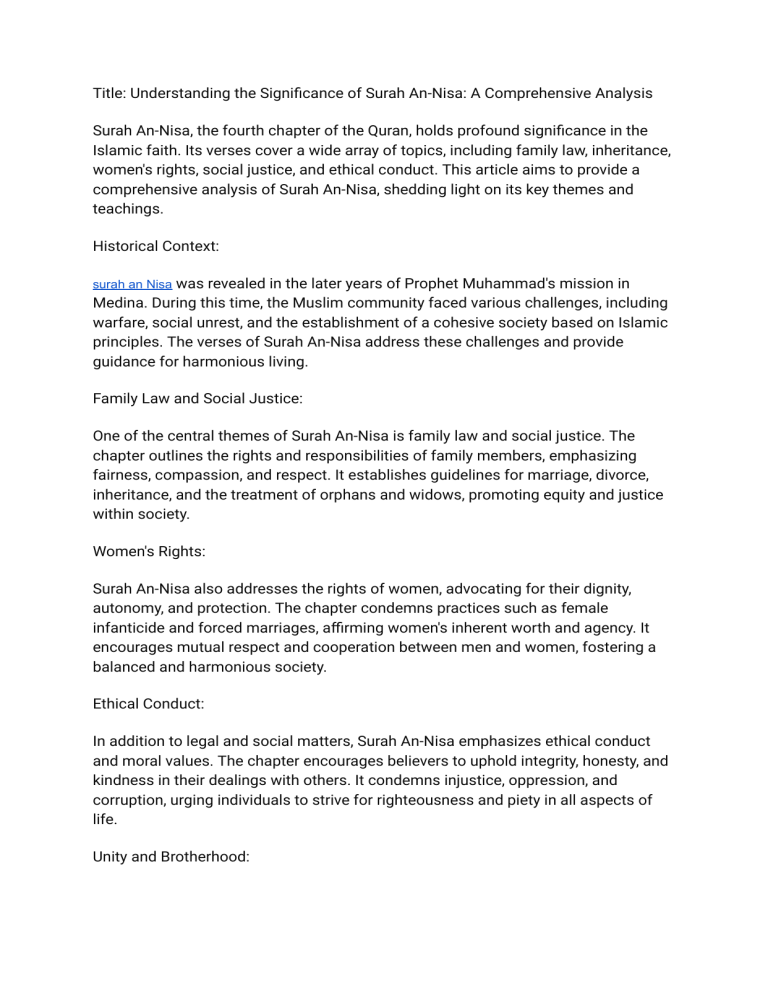
Title: Understanding the Significance of Surah An-Nisa: A Comprehensive Analysis Surah An-Nisa, the fourth chapter of the Quran, holds profound significance in the Islamic faith. Its verses cover a wide array of topics, including family law, inheritance, women's rights, social justice, and ethical conduct. This article aims to provide a comprehensive analysis of Surah An-Nisa, shedding light on its key themes and teachings. Historical Context: surah an Nisa was revealed in the later years of Prophet Muhammad's mission in Medina. During this time, the Muslim community faced various challenges, including warfare, social unrest, and the establishment of a cohesive society based on Islamic principles. The verses of Surah An-Nisa address these challenges and provide guidance for harmonious living. Family Law and Social Justice: One of the central themes of Surah An-Nisa is family law and social justice. The chapter outlines the rights and responsibilities of family members, emphasizing fairness, compassion, and respect. It establishes guidelines for marriage, divorce, inheritance, and the treatment of orphans and widows, promoting equity and justice within society. Women's Rights: Surah An-Nisa also addresses the rights of women, advocating for their dignity, autonomy, and protection. The chapter condemns practices such as female infanticide and forced marriages, affirming women's inherent worth and agency. It encourages mutual respect and cooperation between men and women, fostering a balanced and harmonious society. Ethical Conduct: In addition to legal and social matters, Surah An-Nisa emphasizes ethical conduct and moral values. The chapter encourages believers to uphold integrity, honesty, and kindness in their dealings with others. It condemns injustice, oppression, and corruption, urging individuals to strive for righteousness and piety in all aspects of life. Unity and Brotherhood: Surah An-Nisa underscores the importance of unity and brotherhood among believers. It calls for solidarity and cooperation within the Muslim community, transcending divisions of race, nationality, and social status. The chapter emphasizes the principle of mutual support and empathy, fostering a sense of belonging and camaraderie among believers. Guidance for Contemporary Challenges: While Surah An-Nisa was revealed over fourteen centuries ago, its teachings remain relevant to contemporary challenges. In a world marked by social inequality, gender discrimination, and ethical dilemmas, the chapter offers timeless principles for building a just and compassionate society. By reflecting on its message and applying its teachings, Muslims can address present-day issues with wisdom and integrity. Surah An-Nisa serves as a comprehensive guide for believers, offering insights into family life, social justice, women's rights, ethical conduct, and unity. Its timeless teachings continue to inspire millions of Muslims worldwide, guiding them in their journey towards spiritual fulfillment and societal well-being. As believers engage with its verses, they are reminded of the enduring relevance of Quranic wisdom in navigating the complexities of the modern world.


